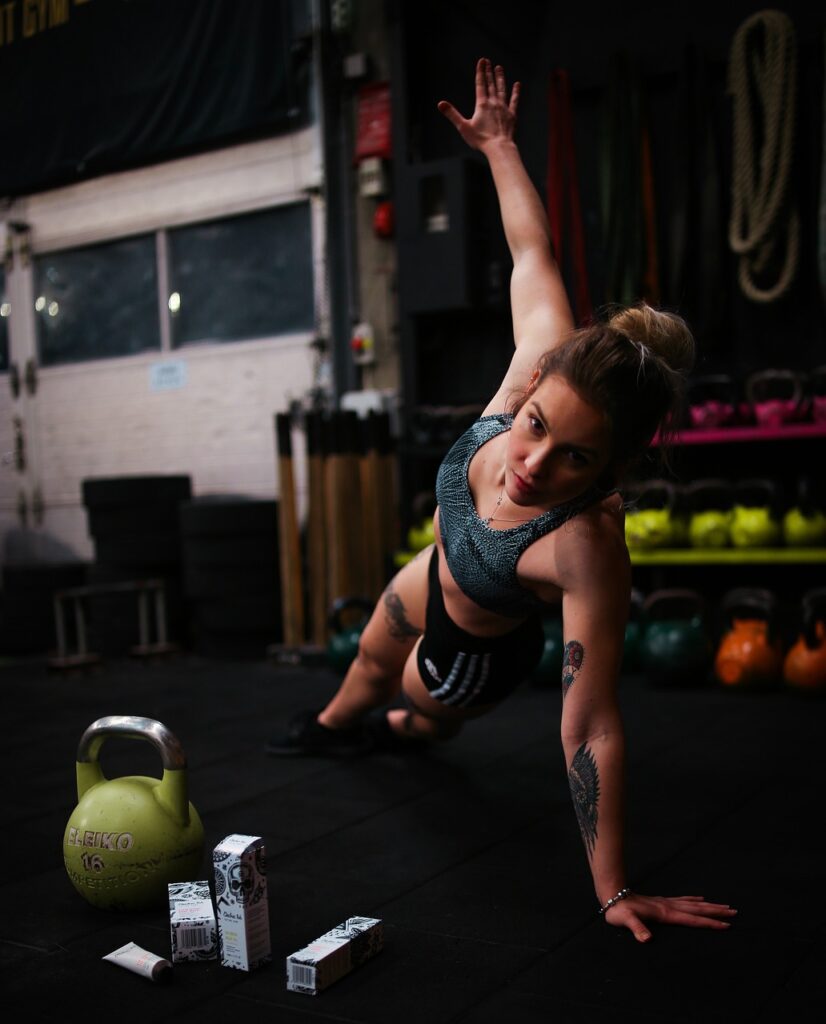Bodybuilding is a sport and fitness activity that involves rigorous weight training and resistance exercises to develop and sculpt the muscles of the body. It typically focuses on building muscle mass, strength, and definition, with the ultimate goal of achieving an aesthetically pleasing physique.
If you’re interested in bodybuilding, here are some key points to consider:
Resistance Training: Bodybuilding heavily relies on resistance training, which involves using weights, machines, or bodyweight exercises to stress and challenge the muscles. This stimulus promotes muscle growth and strength development. Compound exercises like squats, deadlifts, bench presses, and overhead presses are commonly included in bodybuilding routines.
Proper Form and Technique: It’s crucial to prioritize proper form and technique to minimize the risk of injury and ensure effective muscle activation. Working with a qualified personal trainer or coach can help you learn the correct execution of exercises and provide guidance throughout your bodybuilding journey.
Progressive Overload: To make continuous progress, bodybuilders employ the principle of progressive overload. This means gradually increasing the intensity, volume, or difficulty of their workouts over time. This progressive challenge ensures that the muscles are constantly stimulated and pushed beyond their previous limits.
Nutrition and Diet: A balanced and nutritious diet is essential for bodybuilding. Adequate protein intake is crucial for muscle repair and growth, and carbohydrates and healthy fats provide the necessary energy for workouts. It’s recommended to consume a variety of whole foods, including lean meats, poultry, fish, fruits, vegetables, whole grains, and healthy fats.
Rest and Recovery: Giving your body enough time to rest and recover is vital in bodybuilding. Aim for 7-9 hours of quality sleep each night, and incorporate rest days into your training schedule to avoid overtraining and burnout.
Consistency and Patience: Building a muscular physique takes time and dedication. Consistency in your training, nutrition, and lifestyle habits is key. Results may not be immediate, so it’s important to stay patient, stay motivated, and embrace the journey.
Bodybuilding Competitions: Some bodybuilders choose to compete in bodybuilding competitions, where they showcase their physique on stage. These events typically involve posing routines, where competitors display their muscle development, symmetry, and overall presentation. If you’re interested in competing, it’s advisable to work with a coach who has experience in the competition preparation process.
Determining Calories for your Bodybuilding Diet:
You measure of course. Remember, before starting any new exercise or diet program, it’s recommended to consult with a healthcare professional or a certified fitness trainer to ensure it aligns with your individual needs and goals.
Bodybuilding Food Guide
Bodybuilding requires a combination of proper nutrition and exercise to support muscle growth and recovery. When it comes to food, it’s important to focus on nutrient-dense options that provide an adequate amount of protein, carbohydrates, healthy fats, and essential vitamins and minerals. Here are some food suggestions for bodybuilding:
Protein sources:
Lean meats: Chicken breast, turkey breast, lean beef, and fish (salmon, tuna).
Eggs: Whole eggs or egg whites.
Plant-based proteins: Tofu, tempeh, lentils, chickpeas, and other legumes.
Carbohydrate sources:
Sweet potatoes and regular potatoes.
Fruits: Berries, bananas, apples, and oranges.
Healthy fats:
Nuts and seeds: Almonds, walnuts, chia seeds, flaxseeds, and peanuts.
Avocado and olive oil.
Fatty fish: Salmon, mackerel, and sardines.
Other important foods:
Dairy or plant-based milk alternatives for added calcium.
Green leafy vegetables for additional vitamins and minerals.
Berries and other fruits for antioxidants.
Water for hydration.
It’s important to note that the specific dietary needs and goals can vary for each individual. It may be beneficial to consult with a registered dietitian or nutritionist who can personalize a nutrition plan based on your bodybuilding goals andbodybuilding gym.
Bodybuilding gym:
A bodybuilding gym, also known as a strength training or weightlifting gym, is a facility specifically designed to cater to individuals who are interested in building muscle mass and improving their overall strength and physique. These gyms typically provide a variety of specialized equipment and training tools to facilitate effective bodybuilding workouts.
Here are some key features you might find in a bodybuilding gym:
Free Weights: Bodybuilding gyms typically offer a wide range of free weights, including dumbbells, barbells, and weight plates.
Resistance Machines: In addition to free weights, bodybuilding gyms may have a selection of resistance machines. These machines provide a guided range of motion and are helpful for targeting specific muscle groups.
Strength Training Accessories: Bodybuilding gyms often provide various accessories to enhance training, such as weightlifting belts, lifting straps, resistance bands, chains, and grip strengtheners. These accessories can assist in maintaining proper form, preventing injuries, and adding variety to workouts.
Personal Training and Coaching: Some bodybuilding gyms offer personal training services or have experienced coaches available to provide guidance, advice, and customized workout plans. These professionals can assist with proper technique, programming, and tracking progress.
Community and Support: Bodybuilding gyms often foster a sense of community among their members. The shared interest in strength training and bodybuilding can create an environment where individuals support and motivate each other towards their fitness goals.
Remember that the specific amenities and equipment available in a bodybuilding gym can vary depending on the facility. It’s a good idea to visit different gyms in your area or check their websites to get a better understanding of their offerings before choosing the one that best suits your needs.

